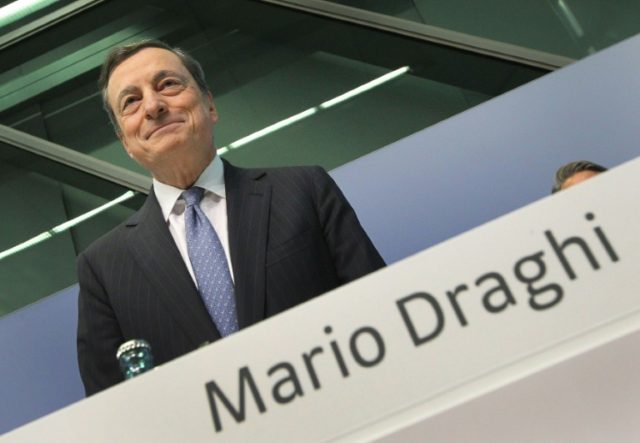The European Central Bank is running out of well-performing German bonds to buy, which could usher in a new banking crisis for the European Union (EU).
One of the ways the European Central Bank (ECB) has been able to avert financial disaster since the 2008 crash has been the steady buying of government bonds. The buying of bonds has allowed countries who use the euro currency to play off the strength of the German economy as other European economies struggle to grow.
The ECB now finds itself in trouble as Germany is halting borrowing, and ECB rules won’t allow the purchase of bonds that are hitting record low rates of interest, reports Die Welt.
The ECB stimulus of the European economy known as quantitative easing, or QE, is designed to keep the banking system going by the purchase of government bonds.In the EU the largest economy with the
In the EU the largest economy with the best-rated debt is Germany. As such the German bonds are seen as a backbone of the programme that allows other countries with much worse ratings like Greece, Spain, and Portugal, to use the euro as a stable currency.
The problem the central bank is now facing is that they may have purchased all the bonds that the German government is willing to sell; to make matters worse there are rules which won’t allow the ECB to buy bonds that already exist on the market. The ECB also has a rule that states they are not allowed to purchase bonds that have a lower rate of interest than bank deposits. The rate of many bonds has gone below that level making them unable to be bought by the bank.
The real world consequences of a lack of good debt for the bank to buy could be catastrophic according to experts like Richard Barwell, economist at BNP Paribas Investment Partners, who said if the ECB decided to buy more bonds from indebted countries like Italy it could be the “end game”.
“With Italy having a significantly higher debt burden than the other large Eurozone economies,” Mr. Barwell said, “It would mean ECB QE slowly morphing into Banca d’Italia QE.”
The Italian banking system is already under incredible strain as recent reports show that without a substantial bailout, many Italian banks may not be able to survive a banking crisis. Italy is currently faced with 360 billion euros worth of non-performing loans and exposing the Eurozone to more risk from the country could be disastrous.
The answers for the ECB are, at best, to allow a change of rules so they can purchase bonds with low yields but this would expose European banks to potentially massive losses. The bank could get rid of the rule of only being able to hold a third of a country’s total debt, but would lead to accusations of the bank “owning” European countries.
There are no easy answers for the central bank, but increasingly without decisive action a banking crisis may be inevitable.

COMMENTS
Please let us know if you're having issues with commenting.